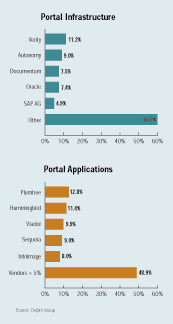Sun Microsystems' dance with, and around, the open-source software community may lead to new development platforms for developers.
IBM has updated WebSphere Studio to support Version 2.0 of the open-source Eclipse tools plug-in IDE, Version 1.3 of the J2EE standard and Version 1.4 of the Sun JDK.
Sun Microsystems CEO Scott McNealy last week expanded on his company's recently announced plans to sell Linux-based PCs during a keynote address at the company's SunNetwork 2002 conference.
Last week, Fujitsu unveiled Linux implementations of its mainstay COBOL products.
The Eclipse consortium moved this week to expand on earlier IBM efforts with the creation of the Eclipse Technology Project, an open-source project that supports research, education and engineering initiatives undertaken to integrate multiple computing technologies using the so-called Eclipse Platform.
VA Software just inked a deal with IBM that could better position the company as an enterprise player in the software development market.
Since its failed plan to merge with Linux distro TurboLinux earlier this
year, San Francisco-based Linux services provider Linuxcare Inc. has been
quietly regrouping and aiming its efforts toward last week's unveiling of a new
tool for the provisioning and configuration of large-scale Linux deployments on
mainframe systems.
What chance do young companies in the open-source application server space have today?
Full J2EE servers are outside the open-source province, but handy application servers, XML modules and servlet engines -- often in commercial packs -- hold ground.
A second preview version of the much-anticipated Lindows operating system shipped
last week, but users said the latest implementation still cannot run Microsoft
applications, the ultimate goal of creator Linux.com, and few expect a final
version to ship as scheduled this spring.
Open source software continues to win adherents among a range of software developers,
but especially among corporate coders, who tech watchers said are transforming
it into a standard way to build and deliver software. Analysts at Stamford,
Conn.-based research and consulting firm Meta Group predict that the trend will
continue and strongly urge IT development units to be ready for it.

IT managers look to corporate portals to provide access to masses of data from a single screen; technology is seen as key in progression from Windows to Web desktop.
GNOME and KDE—two feature-rich and mature desktop environments—are vying for the hearts and minds of Linux users.
Leveraging the borderless nature of the Internet, overseas developers have found that it is a small world after all.